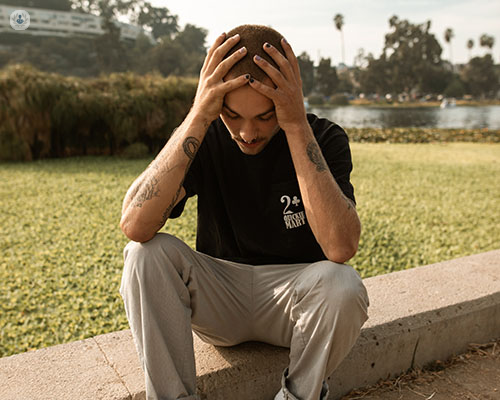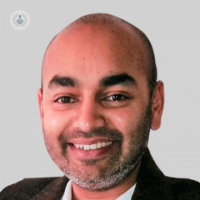What are the main symptoms of undiagnosed adult ADHD?
Written by:Top Doctors recently spoke to leading Luton-based consultant psychiatrist, Dr Iqbal Mohiuddin, who, here in this article below, discusses adult ADHD at length, including the main symptoms of undiagnosed adult ADHD.

What is ADHD?
Attention-deficit/hyperactivity disorder (ADHD) is a common neurodevelopmental disorder starting in childhood that affects about 4.4 per cent of adults worldwide. However, many adults with ADHD remain undiagnosed and untreated, which can have negative consequences for their personal, professional, and social lives.
What are the main symptoms of undiagnosed adult ADHD?
Some of the common symptoms of undiagnosed adult ADHD are:
- Restlessness and difficulty staying still or focused
- Disorganisation and poor time management
- Problems with memory, concentration, and attention
- Impulsivity and poor decision making
- Emotional instability and mood swings
- Low self-esteem and frustration
- Difficulty coping with stress and anxiety
These symptoms can interfere with various aspects of adult life, such as work performance, relationships, finances, health, and well-being. Adults with ADHD are also at a higher risk of suffering from anxiety, depression, bipolar disorder, and substance abuse.
What are the main causes of adult ADHD?
The causes of ADHD are not fully understood, but they are likely to involve a combination of genetic, environmental, and developmental factors. Some of the possible risk factors for developing ADHD are:
- Family history of ADHD or other mental disorders
- Exposure to toxins or infections during pregnancy or early childhood
- Premature birth or low birth weight
- Brain injury or trauma
How difficult is it to diagnose adult ADHD?
The diagnosis of adult ADHD can be challenging, as there is no single test or biomarker that can confirm it. Instead, the diagnosis is based on a comprehensive evaluation that includes clinical interviews, behavioural observations, rating scales, and psychological tests.
How is adult ADHD treated?
The treatment of adult ADHD is similar to the treatment of childhood ADHD, and it usually involves a combination of medication, psychotherapy, coaching, and lifestyle changes. The goal of treatment is to improve the quality of the patient's life by reducing the severity ADHD-related symptoms as much as possible.
Some of the common types of medication used for adult ADHD are stimulants (such as methylphenidate or amphetamine) and non-stimulants (such as atomoxetine or guanfacine). These medications can help improve attention, concentration, impulsivity, and hyperactivity by affecting the levels of certain neurotransmitters in the brain. This treatment method should be carefully monitored by a healthcare professional.
How effective is psychotherapy when it comes to treating adult ADHD?
Psychotherapy can help adults with ADHD cope with their emotions, improve their self-esteem, develop coping skills, and address any underlying issues or coexisting conditions. Cognitive behavioural therapy (CBT) is one of the most common and effective psychotherapy techniques.
Coaching can help adults with ADHD improve their organisational skills, time management, goal setting, problem solving, and self-regulation. Coaching can be provided by a professional coach or a peer mentor who has experience with ADHD. Lifestyle modifications such as getting more regular exercise, improving diet, and reducing stress can all really help with the management of adult ADHD.
Undiagnosed adult ADHD can have a significant impact on the lives of those who have it and those around them. However, with proper diagnosis and treatment, adults with ADHD can manage their symptoms and achieve their full potential.
If you wish to book an appointment with Dr Iqbal Mohiuddin today, simply head on over to his Top Doctors profile.


